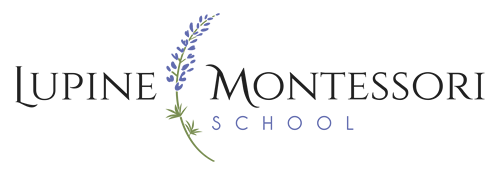Each Montessori program is comprised of a three-year cycle. In their first year, children act as explorers. They are exposed to new information and skills. They investigate their classroom and keep a close eye on the older students to follow their example. When they enter their second year, students with one year under their belt become experimenters. They know the material and find ways to dig deeper, often with their peers. In their third year, these capstone students are the experts. They research and report confidently while taking on a leadership role in the classroom.
Casa Outcomes
Life Skills: Personal Development
Care for self independently
Demonstrate confidence
Ask for help when needed
Develop a sense of order and sequence
Focus for extended periods of time
Demonstrate self-motivation, and curiosity for learning new skills
Handle materials with care
Work independently
Observe and demonstrate attention to details
Complete a work cycle: choose work, practice, and tidy up
Express needs and feelings appropriately
Life Skills: Social Development
Enjoy helping others and sharing knowledge with peers
Participate in groups
Respect the needs and work of others
Display leadership through mastery of skills and initiative to teach others
Use empathy to solve conflicts and develop relationships
Show community awareness through grace and courtesy, recycling, and composting
Demonstrate an understanding that the actions of one impact the community
English Language
Use words and phrases acquired through conversations and experiences in the classroom
Tell a story using expression
Have a strong foundation of phonemic awareness (understand that words have meaning and that words are made up of different phonemes)
Organize thoughts and feelings and share them with others
Begin introduction to word study: nouns, articles, adjectives
Reading
Identify, manipulate, and substitute phonemes in spoken words
Understand the relationship between phonemes and graphemes to associate written letters with the sounds of spoken language
Develop phonetic reading skills
Identify introductory phonograms and sight words
Writing
Develop finger dexterity and strength through practice in all areas of the classroom
Compose thoughts using moveable alphabet (phonetic spelling)
Express ideas using art media that shows universal symbols
Develop a proper pencil grip
Develop cursive penmanship skills
Mathematics
Numeration
Understand the concept of quantity and the relationship between mathematical values and their daily world
Recognize numbers 1-100 and higher
Count and read numbers into the thousands
Write numbers properly with minimal reversals and with increasing accuracy
Decimal System
Understand place value and the relationship of numbers within it
Begin to understand the concept of exchanging place values
Build numerical equations using place value into thousands
Operation
Understand the concept of the four operations
Begin to reason abstractly and quantitatively
Cultural Arts
Identify and describe seasons with months of the year
Use a calendar to mark the passage of time
Demonstrate the ability to tell time on an analog clock
Identify continents
Explore continents and cultures
Identify major land and water forms
Science
Use hands-on materials to identify and classify the natural world
Use scientific observation and research exploration to gain familiarity with zoology, botany, and the physical sciences

